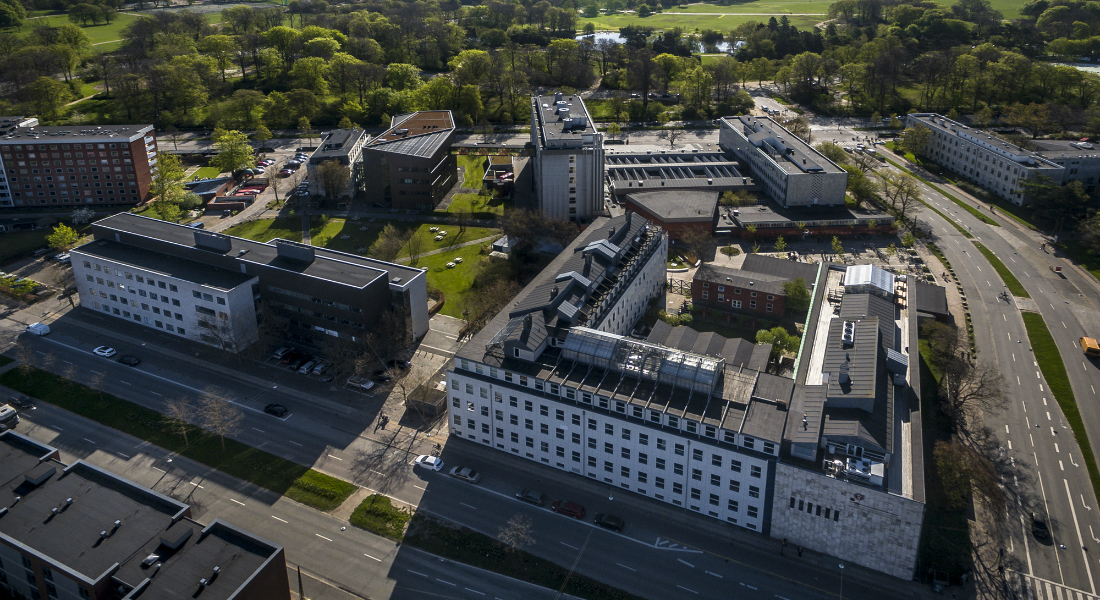About the Drug Research Academy

Drug Research Academy (DRA) is an interdisciplinary graduate programme in pharmaceutical sciences located at the Department of Pharmacy and Department of Drug Design and Pharmacology under the Graduate School of the Faculty of Health and Medical Sciences, University of Copenhagen.
130 PhD students are affiliated with DRA (November 2025).
Here you can read and download the DRA leaflet - short information about DRA and the Danish PhD programme.
The vision of DRA is to create an internationally highly recognized graduate programme in pharmaceutical sciences and increase the quality of our PhD scholarships by:
- promoting top level interdisciplinary and translational research in pharmaceutical sciences
- providing expert administrative guidance to our PhD students and supervisors
- facilitating collaboration with our stakeholders
- creating a collaborative environment through networking activities
- coordinating PhD courses in pharmaceutical sciences
- promoting internationalization through collaboration with PhD schools abroad
- performing quality assurance of our scholarships and programme
The Head of programme is Professor Petrine Wellendorph.
The Steering Committee consists of the deputy heads of department for research at the Department of Pharmacy and the Department of Drug Design and Pharmacology and the head of programme.
The Steering Committee has the following members:
- Petrine Wellendorph - Head of programme, Drug Research Academy
- Dan Stærk - Head of Department, Department of Drug Design and Pharmacology
- Martin Malmsten - Deputy Head of Department for research, Department of Pharmacy
- Caroline Buhl - PhD student, Department of Pharmacy
- Jascha Henseler - PhD student, Department of Drug Design and Pharmacology
Consultants are the representatives in the SUND PhD Study Board from pharmaceutical sciences:
- Professor Vito Foderà, Department of Pharmacy
- PhD student Katrine Povlsen, Department of Drug Design and Pharmacology
- PhD student Rikke Helstrup, Department of Pharmacy (alternate)
The Administration of DRA consists of:
- PhD coordinator Marianne W. Jørgensen
DRA has a programme collaboration, DIM, with the graduate programmes: Molecular Mechanisms of Disease (MoMeD) and Preclinical In Vivo Research (IVR). The purpose of this collaboration is to enhance and develop central transferrable skills important for future career opportunities, help our students structure their research and increase their research productivity, and focus on career paths after graduation.
DRA is also part of ULLA, a European University Consortium for Pharmaceutical Sciences, which is an international network with an aim to enhance collaboration within education and research within the pharmaceutical sciences between the European universities.
See more details about DRA's collaboration with ULLA or visit ULLA website
The graduate programme in pharmaceutical sciences, Drug Research Academy (DRA), was re-organized in 2013 as a result of the faculty mergers at University of Copenhagen. The 'new' DRA introduced biannual progress reports and mandatory course(s) in project management with the aim of increasing the quality and productivity of the PhD programme.
The Drug Research Academy has made two surveys evaluating the outcome of theses initiatives among PhD students and principal supervisors. The surveys were conducted in December 2016 and January 2017:
- Evaluation report from PhD students
- Evaluation report from principal supervisors
Meet four PhD students from DRA
Meet four DRA PhD students: Emilie Marie Nielsen, Fabian Pfersdorf, Jens Rovelt Andreasen and Kleopatra Kalouta. They were interviewed in connection with the DRA Summer School 2023, an annual event where 120 PhD students from the DRA PhD programme have come together this year at Sørup Herregaard. They share their thoughts on life as a PhD student, the opportunities the DRA programme gives them, and the DRA courses, workshops, summer school, and career day.
Interviews by Lisbeth Lassen, Communication Consultant, Pharma Communication, Pharma Administration.
